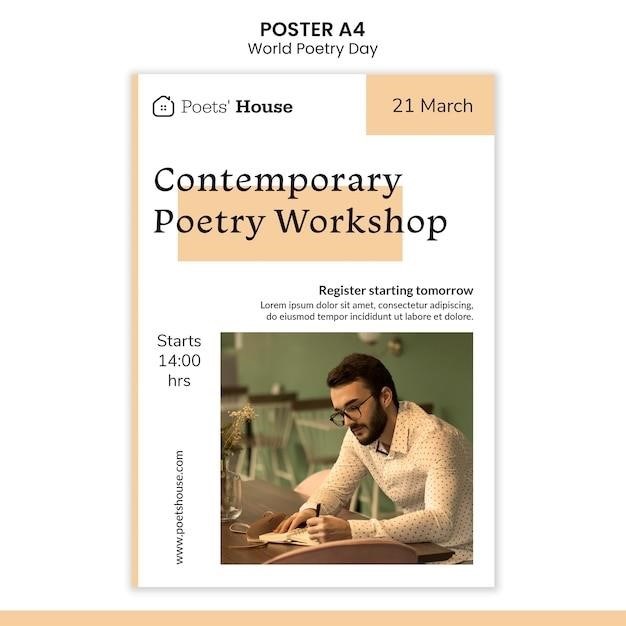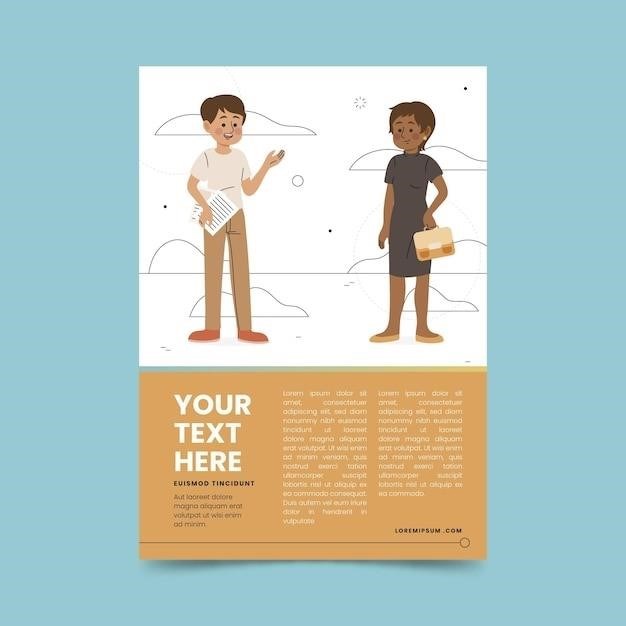
We the People 15th Edition⁚ A Comprehensive Overview
This 15th edition of “We the People” by Thomas E. Patterson offers a concise yet thorough exploration of American government. It emphasizes critical thinking, using relevant examples and questions engaging today’s students. Digital resources enhance learning and connection to current political processes.
Author and Publisher
The esteemed author of “We the People,” 15th Edition, is Thomas E. Patterson, a prominent figure in the field of political science and American government studies. His extensive experience and expertise in the subject matter are evident in the book’s comprehensive and engaging approach. The publisher of this widely used textbook is McGraw-Hill Education, a leading provider of educational materials for higher education institutions across the globe. McGraw-Hill’s commitment to quality and innovation is reflected in the various formats and supplementary resources available for this edition, ensuring accessibility and enhanced learning experiences for students. The collaboration between Patterson’s insightful scholarship and McGraw-Hill’s publishing prowess has resulted in a highly regarded text that continues to shape how students understand American politics and governance. The book’s enduring popularity and widespread adoption in classrooms across the country solidify its position as a cornerstone resource for the study of American government.
ISBNs and Editions
Availability and Pricing
Acquiring the 15th edition of “We the People” can be achieved through various channels, each impacting the overall cost. New print copies are typically available at college bookstores, online retailers like Amazon, and directly from the publisher, McGraw-Hill Education. Prices for print versions fluctuate depending on the retailer and any ongoing sales or promotions. Purchasing used copies can significantly reduce the cost, with options available through online marketplaces such as eBay or Abebooks. Digital access, often bundled with online learning platforms like Connect or VitalSource, provides another avenue for acquisition. These digital versions often come at a lower price point than their print counterparts, offering cost savings for students. The pricing for digital access may vary depending on the chosen platform and included features, such as interactive exercises or online quizzes. Furthermore, rental options for both print and digital copies are available, allowing students to access the textbook for a limited period at a reduced cost. Therefore, students should compare prices from various sources to make an informed decision about the most cost-effective and convenient way to obtain the 15th edition of “We the People.”
Content and Approach
Key Features and Updates
The 15th edition of “We the People” likely boasts several key updates and features designed to enhance the learning experience. Based on the provided text, a significant focus seems to be on incorporating updated information reflecting current political events and social movements. The inclusion of new “Check Your Understanding” questions suggests a greater emphasis on active learning and knowledge reinforcement. The text’s continued emphasis on critical thinking and relevant examples remains a core feature, ensuring the material stays engaging and applicable to students’ lives. Improved readability and accessibility are likely priorities, making the complex subject matter easier to digest. Enhanced digital resources might include updated online quizzes, interactive simulations, and potentially supplemental videos or podcasts providing real-time connections to contemporary political issues. The integration of these digital tools likely aims to make learning more dynamic and interactive, moving beyond the traditional textbook format. While specific details about the updates aren’t explicitly stated in the provided text, the overall improvements point towards a more student-centric, engaging, and relevant learning experience. The focus on race and social movements, as hinted at in some excerpts, suggests an inclusive approach to the study of American government.
Digital Resources and Access
Access to digital resources for “We the People,” 15th edition, varies depending on the purchase method. Some sources mention eBook versions available through platforms like VitalSource, offering significant cost savings compared to print copies. These digital editions likely provide features such as highlighting, note-taking, and search functionality, enhancing the reading and study experience. The inclusion of an access code with certain packages suggests access to online learning tools, possibly including interactive exercises, quizzes, and assignments. These tools may be integrated with learning management systems commonly used in educational institutions, facilitating seamless integration into course workflows. The availability of online homework, quizzes, and tests, as mentioned in some excerpts, indicates a robust online component designed to support and complement classroom learning. The extent and nature of these digital resources—whether they involve simulations, videos, or other supplementary materials—remain somewhat unclear from the provided text snippets. However, the overall indication is that a comprehensive digital component exists to enhance understanding and engagement with the core textbook content. The precise features and accessibility of these resources may depend on the specific version purchased (e.g., bundled with Connect access or purchased separately as an eBook).
Reviews and Ratings
While comprehensive review aggregations for “We the People,” 15th edition, are absent from the provided text excerpts, some snippets offer glimpses into reader feedback. One source mentions a 5.0 out of 5-star rating with a single review, suggesting potentially high user satisfaction. However, the limited data prevents a conclusive assessment of overall user sentiment. The lack of broader review data highlights the need for further investigation through dedicated review platforms like Amazon, Goodreads, or student review websites. This absence of widespread reviews doesn’t necessarily imply negative reception; it simply indicates a lack of publicly available, aggregated feedback at this time. To gain a more complete understanding of user opinions, additional research is necessary to uncover reviews from various sources and assess the range of experiences with the textbook. Future reviews will be crucial to building a more comprehensive picture of the 15th edition’s strengths and weaknesses from the perspective of those using it for educational purposes. The single perfect rating, while encouraging, cannot be considered representative of the overall user experience without more data. The absence of negative or mixed reviews does not automatically translate to universal praise. A balanced perspective requires a more extensive review analysis.

Comparison with Previous Editions
Direct comparisons between the 15th edition and its predecessors are scarce within the provided text. However, some inferences can be made. The mention of new co-author Megan Ming Francis and her expertise in race and ethnicity politics suggests a significant update to the content, likely enhancing coverage of social movements and race relations within the American political landscape. This addition likely reflects a shift in pedagogical approach to incorporate contemporary social and political realities. The inclusion of “Check Your Understanding” questions, while not explicitly linked to previous editions, hints at improvements designed to boost student engagement and comprehension. The text also notes that SmartBook 2.0 is included, suggesting an upgrade to the digital learning tools, reflecting a commitment to modernizing the learning experience. While specific alterations aren’t explicitly detailed, the presence of these additions indicates a departure from previous iterations, aiming for enhanced relevance and improved learning outcomes. Further research is needed to fully grasp the extent of changes implemented in the 15th edition compared to earlier versions. The nature and scope of revisions in other areas, such as chapter reorganization or updated case studies, remain unclear from the available text.
Target Audience and Use Cases
The primary target audience for “We the People,” 15th edition, is clearly undergraduate students enrolled in introductory American government courses. The text’s concise approach and emphasis on critical thinking skills suggest it’s designed for students at various levels of political understanding. The availability of digital resources, including SmartBook 2.0 and potentially online quizzes, points towards a focus on interactive and engaging learning experiences common in modern higher education. Furthermore, the mention of its use in dual credit AP high school courses indicates applicability beyond the traditional undergraduate setting, broadening its audience to include advanced high school students seeking college-level credit. The book’s accessibility and clear writing style make it suitable for students who may not have extensive prior knowledge of political science. Beyond formal educational settings, the comprehensive nature of the text could be valuable for anyone seeking a robust understanding of American government, including citizens interested in civic engagement, political analysis, and informed participation in democratic processes. Its use cases range from classroom instruction and independent study to general public interest reading.
Where to Purchase
Acquiring “We the People,” 15th edition, presents multiple avenues for students and interested readers. The text is readily available through major online retailers such as Amazon.com, where both print and digital versions are offered. eCampus.com is another prominent vendor providing options for renting or purchasing the textbook, potentially including bundled packages with access codes for online components. Additionally, the publisher, McGraw-Hill Education, likely offers direct purchasing options through their website, potentially with institutional discounts for educational institutions. The availability of loose-leaf versions suggests that bookstores specializing in textbooks also likely carry the title. For those seeking digital access, platforms like VitalSource are mentioned in online listings as providers of e-textbook versions. While PDF downloads of the complete textbook may be advertised by third-party sellers, caution is advised, as obtaining copyrighted material without proper authorization is illegal. Therefore, legitimate purchasing channels through authorized retailers or the publisher should always be prioritized to ensure legality and access to any accompanying digital resources.
Additional Resources and Information
Beyond the textbook itself, supplementary materials significantly enrich the learning experience offered by “We the People,” 15th edition. McGraw-Hill Education, the publisher, likely provides a robust online platform, perhaps incorporating interactive elements, quizzes, and supplementary readings. These online resources could include video lectures, news clips, or interactive simulations related to the concepts discussed in the textbook, thereby enhancing comprehension and engagement. Searching the publisher’s website for the textbook’s ISBN will likely reveal links to any official companion websites or online learning tools. Furthermore, instructors using the textbook in their courses may provide additional resources, such as course-specific materials, supplementary readings, or links to relevant news articles and current events. Students are encouraged to check their course syllabus or learning management system for any supplementary resources provided by their instructor. Finally, exploring reputable academic websites and online databases can provide further insights into the topics covered in the textbook. Utilizing these resources alongside the core text can create a truly comprehensive and enriching learning journey.





